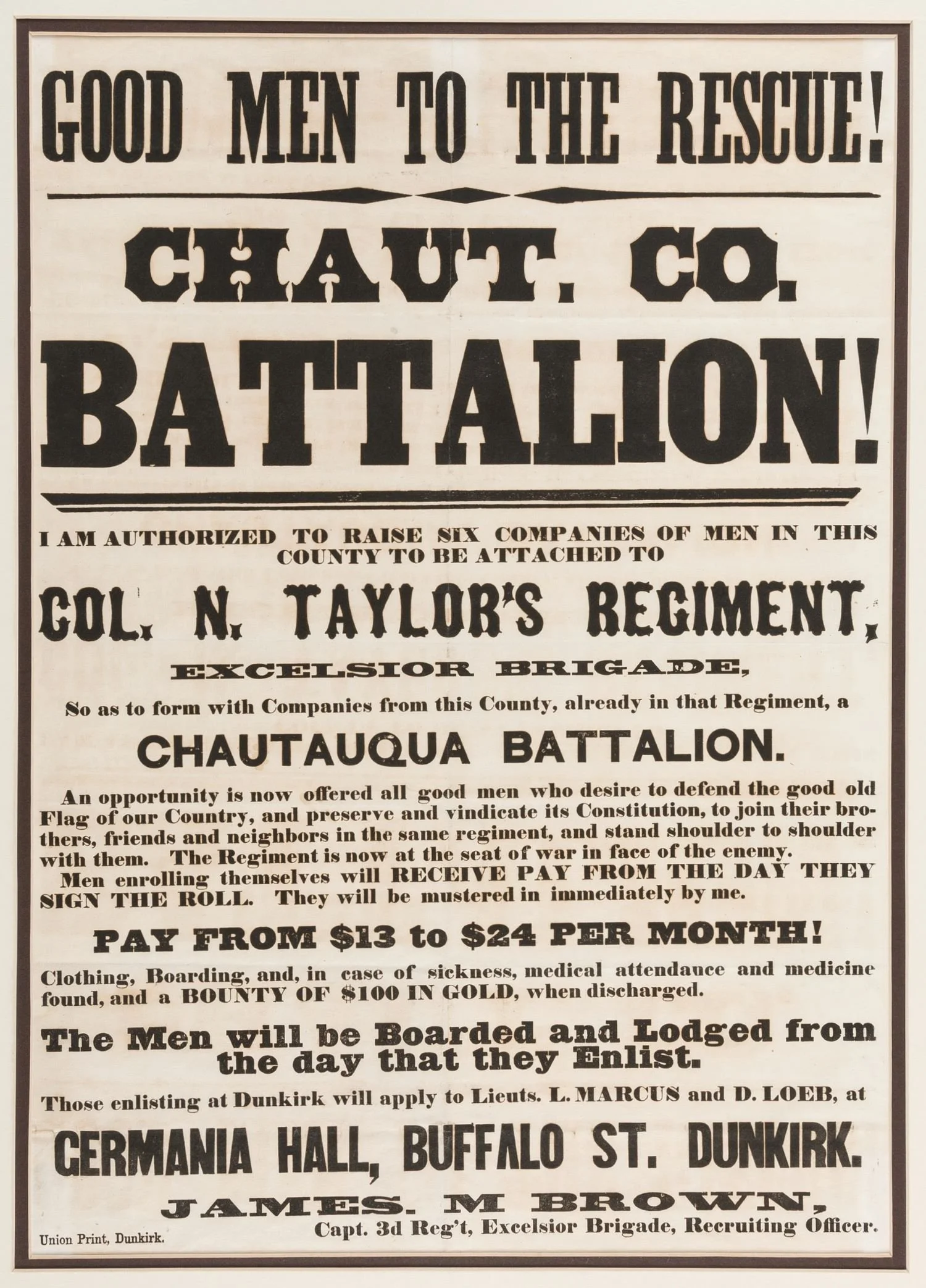A Chautauqua Soldier’s Messages From War
Writing for Home: A Chautauqua Soldier’s Messages from War, a program by author and historian Rick Barram, will be presented by the CCHS on August 24.
The program, free and open to the public, begins with a potluck dinner at 5:30 p.m. at the Harmony-North Harmony History Center at 1943 Open Meadows Rd., Ashville. Guests are asked to bring a dish to pass and their own table service.
Barram’s program, which begins at 6:30 p.m., is based on his book, Dear Uncles, The Civil War Letters of Arthur McKinstry, a Soldier in the Excelsior Brigade.
Serving as an informal “war correspondent” for the Fredonia Censor newspaper owned by his uncles, McKinstry’s extraordinary and articulate letters offer an intimate and immediate picture of the common soldier’s everyday trials, tribulations, and minor victories.
“I have endeavored all along to make the Censor the military gazette of the county and I believe that I am succeeding,” wrote McKinstry in a letter from the field.
Barram’s book examines the type of news Chautauqua County received of the war through McKinstry, who was focused on the more than 500 men serving with the 72nd New York Infantry, part of the Excelsior Brigade.
The adventures of McKinstry and his Chautauqua County mates are recorded as they depart home for the vast assembly camps on Staten Island. With the Union’s defeat at Bull Run, the regiment is hastily transferred to the defenses surrounding Washington D.C.
As the threat to the capital abates, they relocate to what McKinstry describes as the “doubtful part of Maryland” along its Potomac shore. In Charles County, the Excelsior Brigade regiments dealt with secessionist troublemakers while monitoring Virginia rebels across the river. Eventually, McKinstry and the brigade are transported to the battle of Williamsburg.
Letters to his mother reveal McKinstry’s more personal thoughts and frustrations. Having grown up on a farm in western New York, McKinstry is surprised and shocked at the harsh, rough-hewn conditions of life in lower Maryland and the cruel reality of slavery’s human toll, a far cry from the idyllic scenes depicted in popular magazines and journals of the day.
Dear Uncles reveals a soldier’s life during the war’s critical early months when Union troops occupied lower Maryland to suppress traitorous activity and protect Washington from attack. Whether scrounging to fashion a Thanksgiving feast or lingering along the river’s shore to watch Confederate cannoneers shoot at passing ships, only to scatter when errant shells explode nearby, McKinstry’s firsthand accounts bring the drama of soldiering to life.
Barram is a retired history teacher living in northern California. He is a long-time Civil War reenactor and researcher focused primarily on New York units. His articles have appeared in America's Civil War magazine and other publications. Besides Dear Uncles, Barram is the author of another book, The 72nd New York Infantry in the Civil War, A History and Roster.
The program is part of the CCHS lecture series, which began in 1884.

